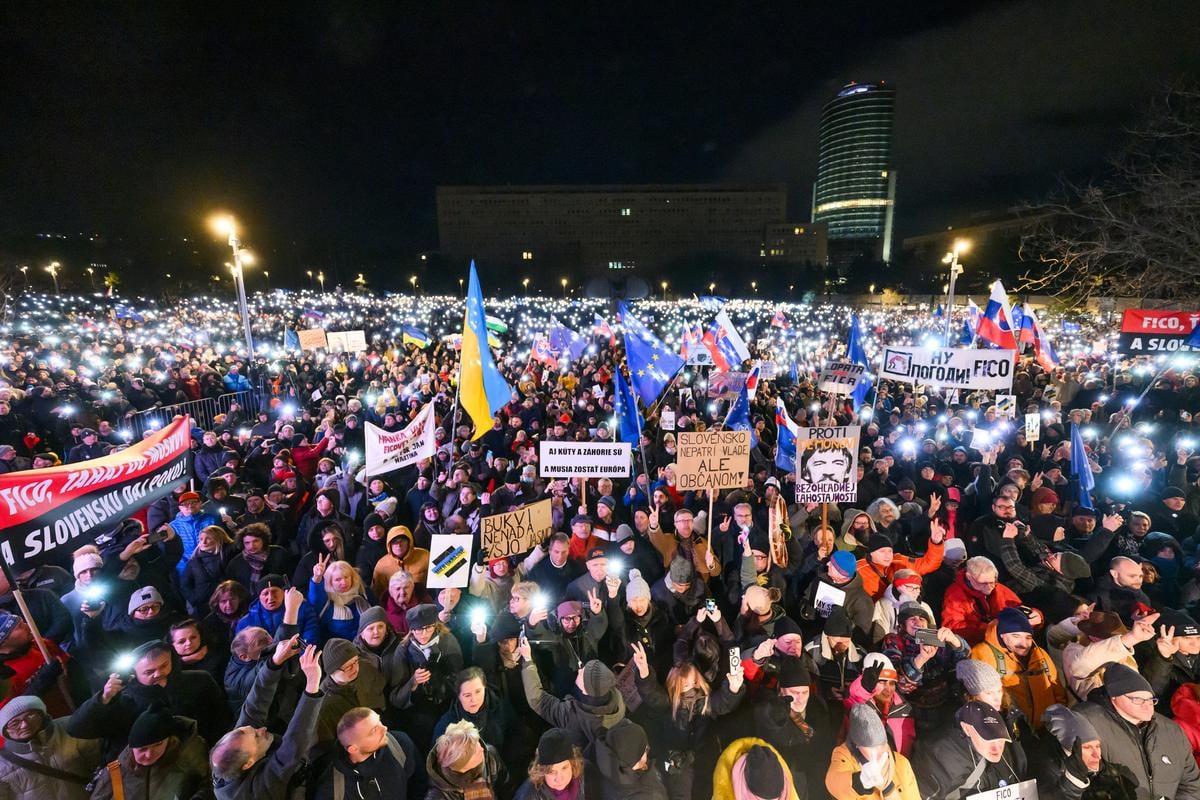In January, when thousands of people took to the streets to protest what they saw as a threat to Slovakia’s pro-European and pro-NATO course, Prime Minister Robert Fico (Smer) claimed the country was facing an orchestrated attempt to destabilise his government. He accused opposition-linked NGOs of plotting a “Slovak Maidan” as part of a broader, foreign-backed strategy. He cited what he described as an evidence-based report from the Slovak Information Service (SIS) as justification.
In response, a meeting of the Security Council was convened. Interior Minister Matúš Šutaj Eštok (Hlas) later stated that several cases were being prosecuted in connection with the alleged coup plot.
As part of those claims, the government linked the supposed coup to the civic initiative Not in Our Town (Nie v našom meste), which had circulated an AI-generated email about protest gatherings. Fico also launched verbal attacks against Lucia Štasselová of the organisation Peace for Ukraine (Mier Ukrajine), one of the organisers behind the Slovakia Is Europe (Slovensko je Európa) protests.
In late January, Fico’s party, Smer, went further, adding Mamuka Mamulashvili—the Georgian commander of Ukraine’s National Legion—to a list of individuals and groups allegedly threatening Slovakia. The party accused him of helping orchestrate a coup attempt.
In February, police announced the expulsion of a 59-year-old Ukrainian national, reportedly with ties to intelligence services. The man was banned from entering Slovakia and other EU member states for two years, though no further details were provided.
Opposition leaders dismissed the claims, accusing the government of presenting no credible evidence. If such a threat were real, they argued, the state would have responded differently and more decisively.
Silence and investigation
Since early February, Prime Minister Fico has largely dropped the subject of the alleged coup.
In a recent interview with Denník N, Lucia Štasselová said that despite Fico’s accusations and the convening of the Security Council, no one from law enforcement had contacted her in the two months since. “Robert Fico accused me of organising a coup and convened a meeting of the State Security Council—yet since then, there has been a deafening silence,” she said.
Zuzana Janíčková, a representative of Not in Our Town, confirmed that no one from the initiative had been contacted by the police either.
Now, months later, Slovakia’s Office for the Fight Against Organised Crime (ÚBOK) has launched an official investigation into suspicions that a coup attempt was being planned. The police declined to provide further details, citing the ongoing nature of the investigation.
Divided public opinion
Public opinion remains divided. According to a recent report by the Central European Digital Media Observatory (CEDMO), 54 percent of Slovaks believe that when Fico speaks of a coup, he is attempting to distract from the problems his government is facing. Twenty-eight percent disagree, while the rest remain undecided.
At the same time, 42 percent of respondents believe the opposition is connected to foreign actors and may be plotting a coup. Forty percent rejected that idea.



 PM Robert Fico's actions caused thousands of people to protests against him. (source: TASR)
PM Robert Fico's actions caused thousands of people to protests against him. (source: TASR)